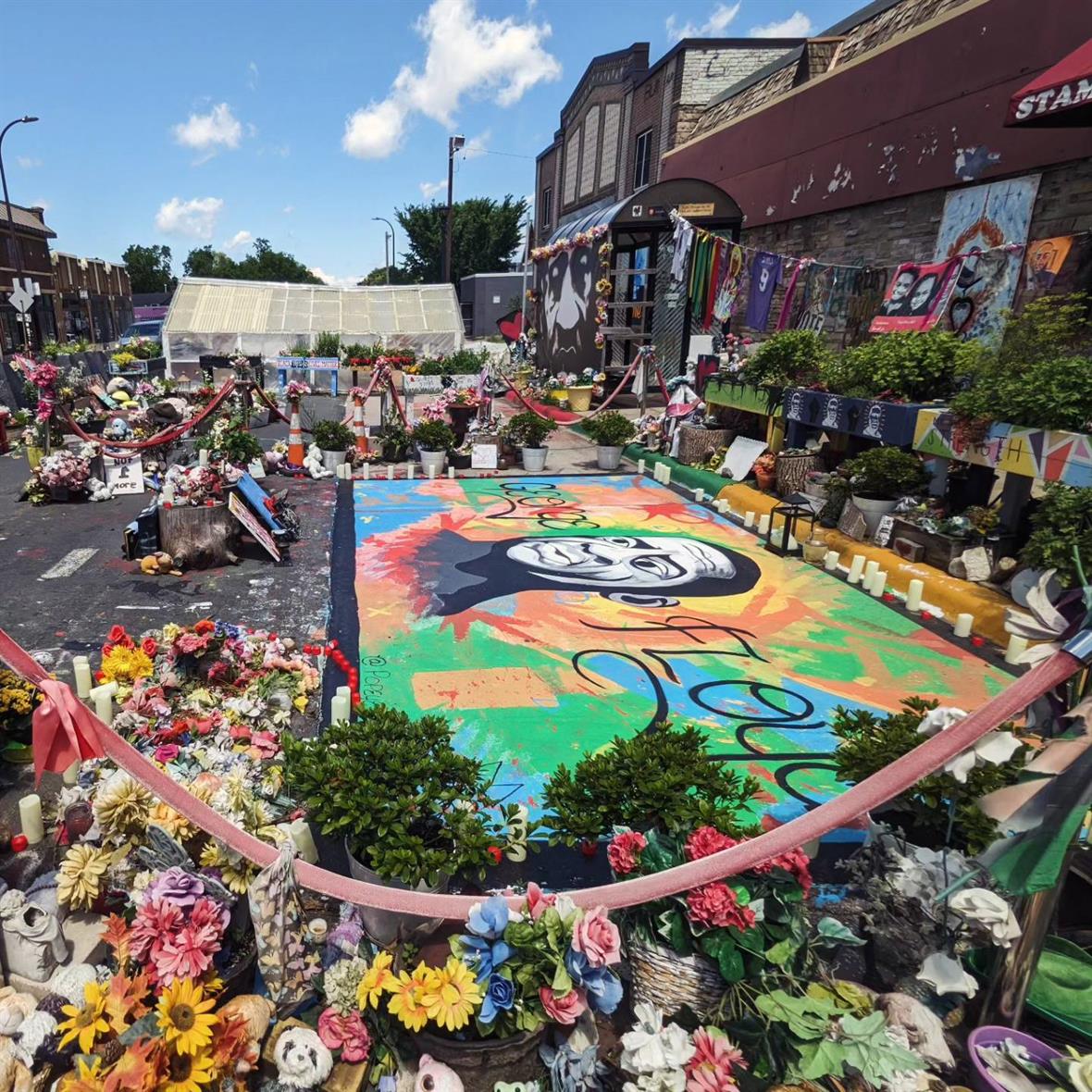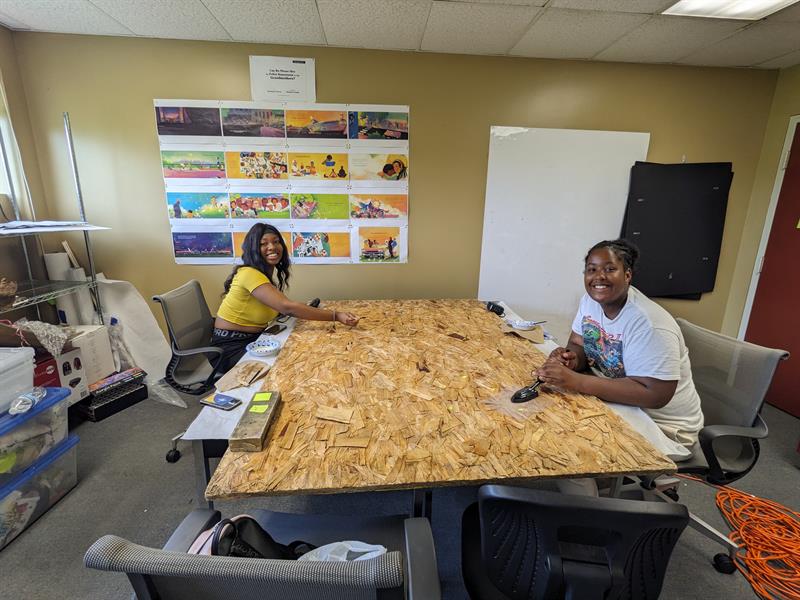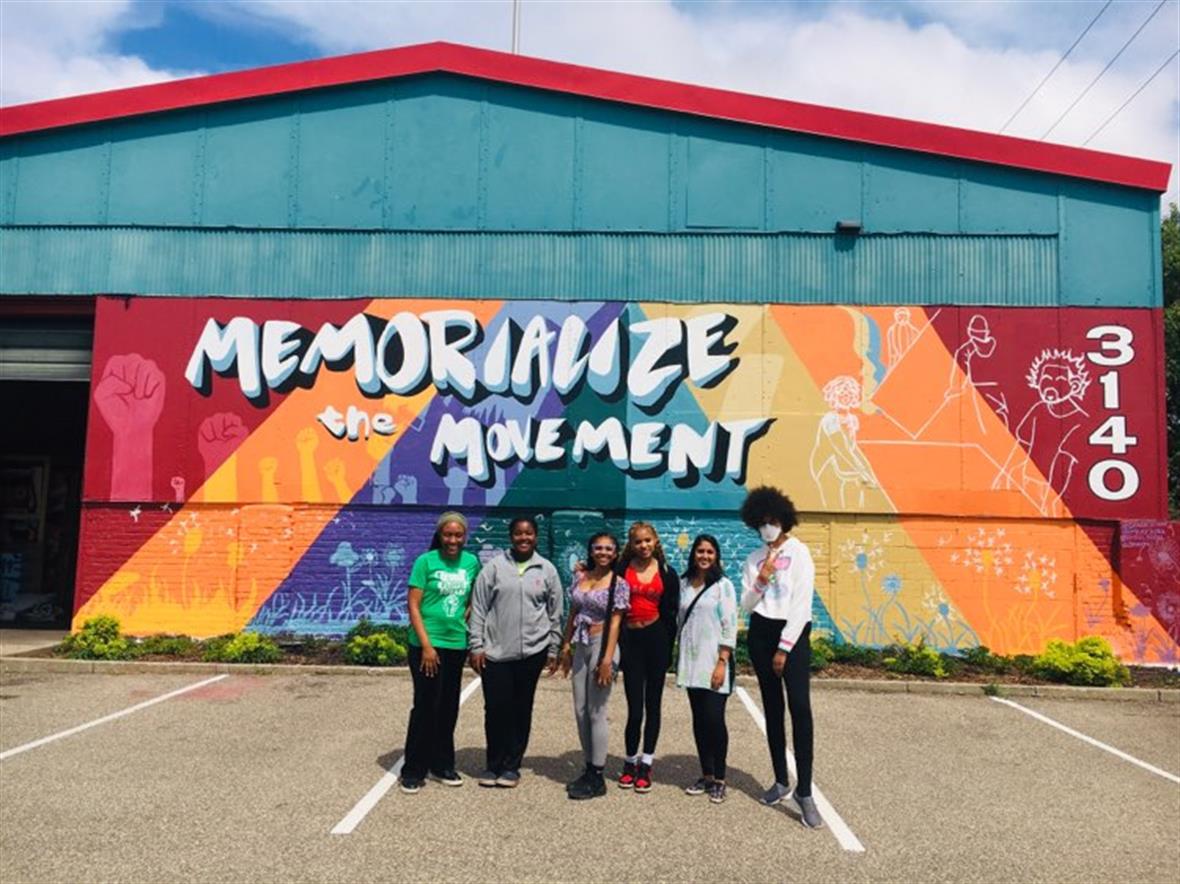
Category: Undergraduate Students

Student Blog: Community-driven conservation
August 01, 2024 Written by CAS Staff
This summer, I had the opportunity to spend one month in Minneapolis conducting research at the George Floyd memorial. Since a few days after George Floyd's death on May 25, 2020, community members have been taking care of the offerings left at the corner of 38th St E and Chicago Ave S, where Floyd was murdered at the hands of the police. Why do community members care continue to care for the offerings? What is their process for preservation? Who takes on this work? These were the questions I had as I started my research this summer.
My dissertation research seeks to understand how community members conserve their own cultural heritage. While they may seek input from graduate program-trained conservators, the community members direct the conservation process. At George Floyd Square (GFS), the nonprofit organization Rise and Remember organizes a team of caretakers to tend to the memorial and preserves the offerings left at the site. Outdoor caretakers maintain the dignity of the memorial by cleaning up trash, tending to plants, and operating a variety of mutual aid services such as the People's Closet. Caretakers also determine when an offering has spent enough time outside and is ready to go into storage and be conserved by indoor caretakers. My focus was on the indoor memorial preservation process.

To better understand the myriad of activities at GFS, I spent one month learning the conservation process, interviewing caretakers and conservators, and attending community meetings. I wanted to get a holistic sense of what community input and involvement looks like, and how it affects the conservation process. In particular, I was focused on the decision-making process of memorial preservation: who decides the conservation techniques and methods utilized, how do they make those decisions, and how does that compare to other decision-making models in the field.
I believe that in order to be successful at conducting research within a community, one of the most important aspects is showing up. In a lot of ways, conducting research is inherently exploitative. In my case, I asked people to relive harrowing moments of 2020, when the police were attacking them and their neighbors right outside their homes. While they were not required to speak with me, I did understand how difficult that was, and I wanted them to feel like it was worth their time to participate in my research. I got to know neighbors and community members by spending time at the Square and attending community events. I also served as Conservation Advisor for the Cultural Heritage Internship Program, a summer internship program for four high school students. Community members saw me at GFS with Rise and Remember Executive Director Jeanelle Austin, tending to the square and teaching the youth. I didn't completely understand the impact at first, but I quickly saw that the visibility of working at the square and teaching skills to the next generation demonstrated my commitment to the community.
Over the course of the month, I taught the interns a wide array of conservation skills and techniques. This included seminars on condition assessments, photodocumentation, ten agents of deterioration, surface cleaning, paper tear repair, humidification and flattening, paint consolidation, and ceramics repair. These seminars prepared the students to put together an exhibition of memorial offerings, which they continued working on after I left. It took a lot of time and energy to organize and host these seminars. Though the students were incredible in their grasp of the concepts and their interest in the process, it was still a learning curve for me to teach high schoolers. But I was honored to be entrusted with their education and to be able to introduce them to art conservation, particularly from my perspective, a perspective that I've been honing and crafting since I started the doctoral program.

One of my biggest reasons for pursuing a doctoral degree was a sort of retraining of my conservation philosophy. Though I was proud of my technical abilities as a paper and preventive conservator, I struggled to find resonance between my professional work and the social justice movement I was personally involved in. In 2020 there were cries for equality and inclusion from all corners of society, and I knew conservation had a role to play in that, but I didn't yet understand how. I saw the doctoral program as an opportunity to explore conservation from a decolonizing, anti-racist, and justice-centered lens.
Recently, I've been adjunct teaching in the Winterthur/University of Delaware Program in Art Conservation, primarily to master's students. It's been an opportunity for me to further develop my conservation philosophy and incorporate it into my teaching. I brought this perspective with me to GFS and the summer interns.
Since the very beginning of my doctoral studies, I knew I wanted to conduct research at GFS with Rise and Remember. The work they are doing has continually inspired and pushed me, and I wanted to see the process myself. It felt momentous to not only be there in person but feel embraced and welcomed by the community. I'm incredibly grateful for the time so many people spent with me, often about the most vulnerable and life-changing period of their lives. I'm looking forward to sharing more details about my research as I continue to process what I've learned this summer!
— UD Preservation Studies Program doctoral candidate Anisha Gupta
